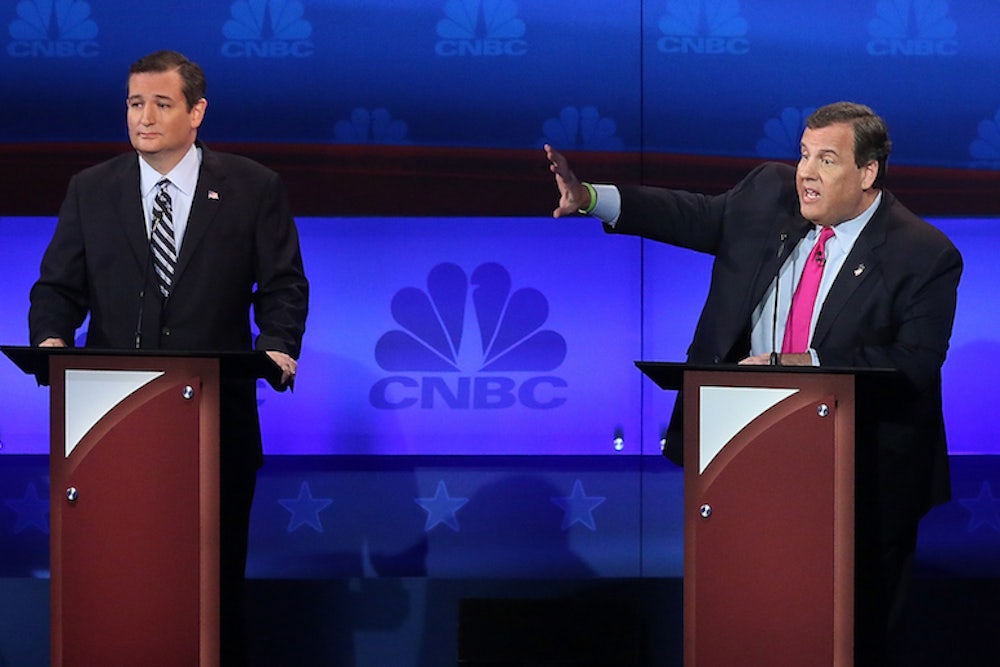Racial justice hasn't received much attention in either party's presidential debates. But more silence would have been preferrable to what we got from Republicans on Wednesday night.
With no prompting from the moderators—a problem in and of itself—New Jersey Governor Chris Christie entered into a brief diatribe on the newest myth driving opposition to the Black Lives Matter movement. The Ferguson Effect hypothesis holds that calls to end racialized police violence have effectively tied the hands of law enforcement and encouraged a corresponding spike in crime nationwide. This spike, of course, does not exist--at least not that anyone has demonstrated. Nor is it true, as Christie went on to claim, that police officers have good reason to be "afraid to get out of their cars."
But Christie's campaign has been stuck at the bottom of the polls for weeks now, and so Christie, a former U.S. attorney, has decided that, while the federal government has no business bothering itself with a bit of insider trading in the fantasy football industry, the imaginary wave of violent crime sweeping across our fair nation is a cause for great concern.
The politics of this decision are as obvious as they are shameful. It's a bit harder to determine why FBI Director James Comey, as Christie repeatedly pointed out, also appears to be convinced of the Ferguson Effect's existence. Last week, Comey lent credence to the notion that crime is on the rise in America as a result of the black community's demands for equitable treatment under the law--a notion that goes against the consensus assessment of his own Justice Department, as well as against the available evidence.
"I don’t know whether that explains it entirely," said Comey, "but I do have a strong sense that some part of the explanation is a chill wind that has blown through American law enforcement over the last year."
Samuel Sinyangwe, of the Campaign Zero criminal justice reform platform, took issue with this high-level validation for what appears to be little more than racial backlash. "The fact that a theory lacking evidentiary support could be so hastily endorsed by some of the nation's foremost institutions speaks to the enduring power of the belief that aggressive policing is the only way to keep black communities safe," wrote Sinyangwe.
The fact that a U.S. governor—of a state with a significant black population—invented an excuse to parrot that theory in a nationally televised presidential debate speaks only to the enduring power of racism in our politics.
